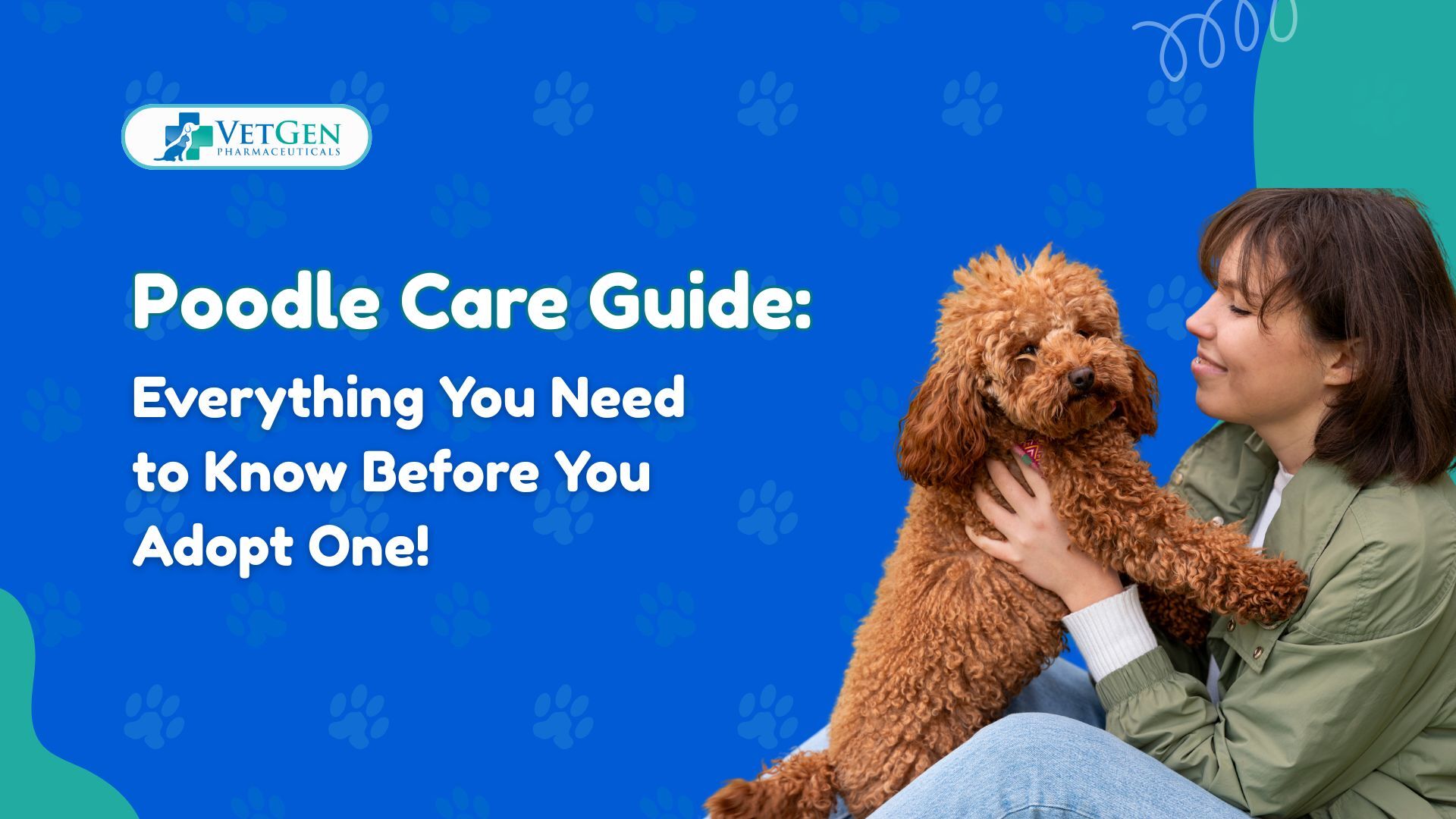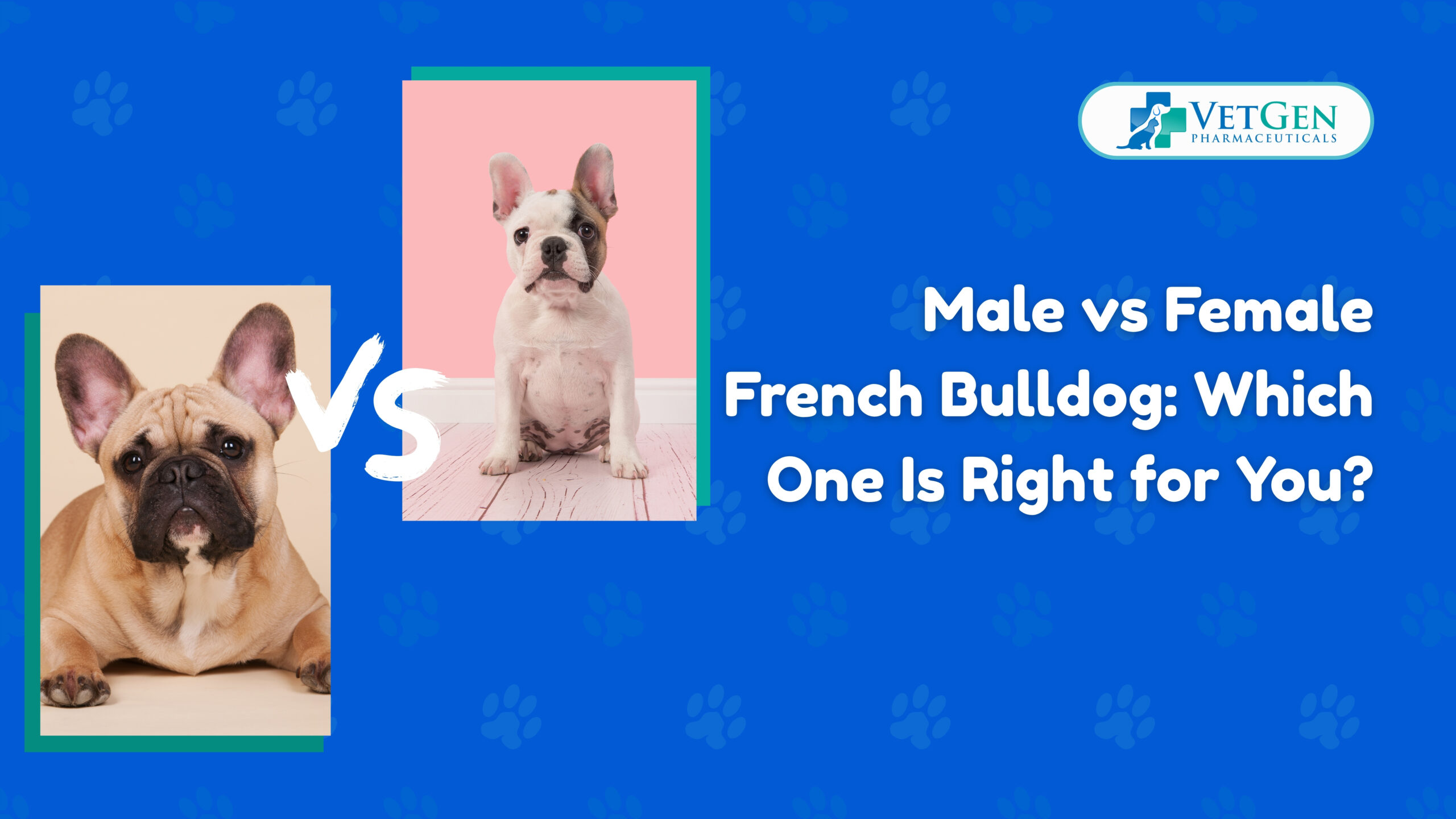Poodles are intelligent, affectionate, and stylish dogs that make great companions. Whether you choose a Standard, Miniature, or Toy Poodle, understanding their needs before adoption ensures a happy and healthy life for your new furry friend.
This guide covers everything you need to know before bringing a poodle into your home.
Understanding Poodles: What Makes Them Unique?
The Poodle breed stands among the most intelligent dogs with excellent training capabilities. Because of their energy levels and affectionate nature, along with adaptability, poodles prove suitable as family pets and are great options for individuals. Their hypoallergenic nature, combined with their curly fur, requires periodic grooming for low hair shedding, which attracts people who suffer from allergies.
The elegant appearance for which poodles are known represents only a small aspect since these dogs demand everyday mental and physical stimulation. People who adopt poodles must satisfy all their requirements so these dogs can lead happy, healthy lives.
Preparing Your Home for a Poodle
Before bringing a poodle home, set up a comfortable and safe environment. Here’s what you need:
- A Cozy Bed: Poodles love a warm and comfortable sleeping space.
- Food and Water Bowls: Use sturdy, non-slip bowls to prevent spills.
- Quality Dog Food: A balanced diet ensures a healthy coat and a strong body.
- Toys and Puzzles: Poodles thrive on mental stimulation, so interactive toys are essential.
- Grooming Supplies: Brushes, combs, and clippers help maintain their curly coats.
- A Secure Yard or Leash: Poodles are active dogs and need a safe place to exercise.
A well-prepared home makes the transition smoother and helps your poodle feel comfortable from day one.
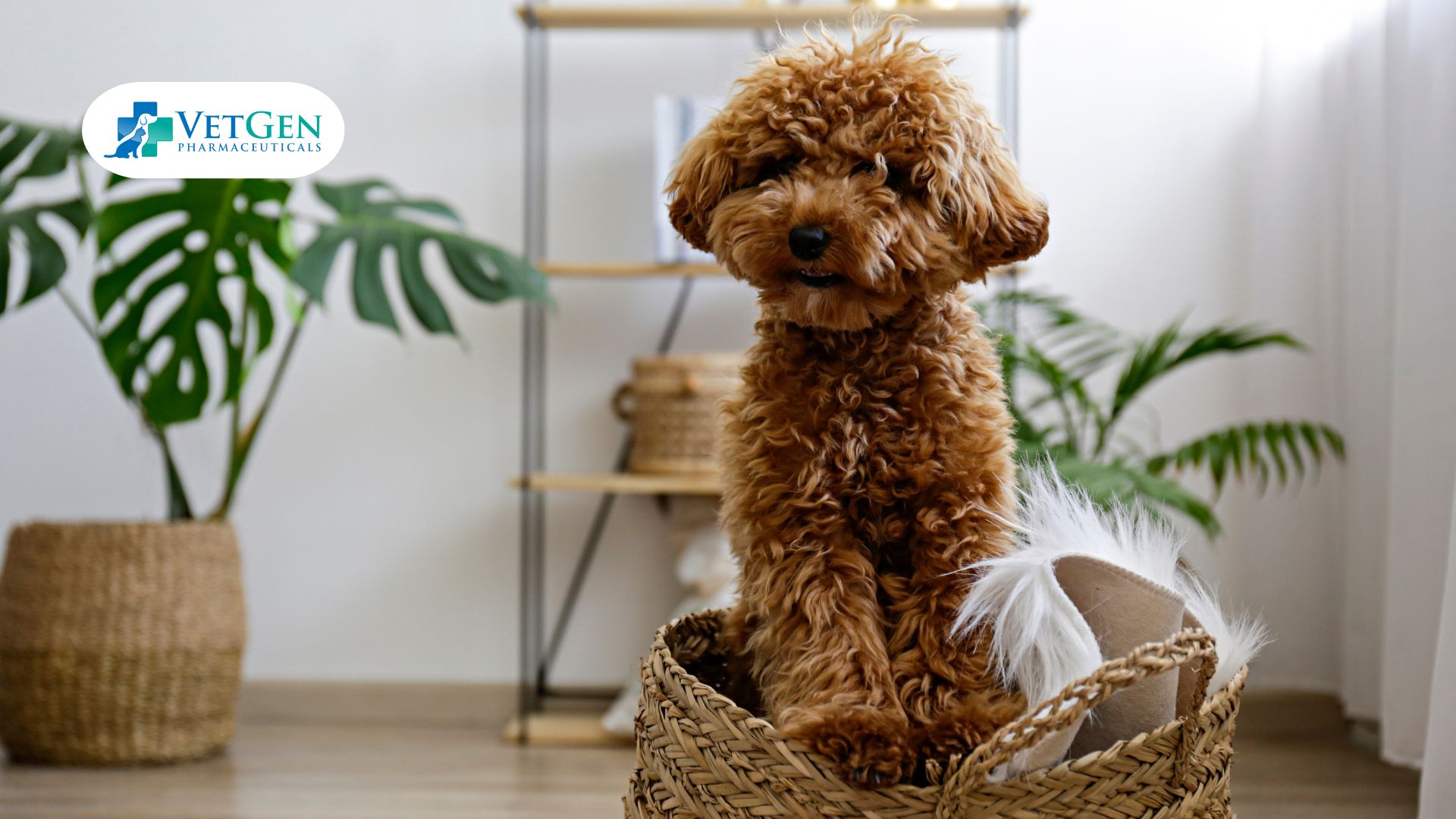
Feeding and Nutrition
A poodle requires a balanced dietary plan for maintaining its energetic health. High-quality dog food containing protein with vitamins and minerals sustains their vitality and grooming health.
People should stay away from foods containing artificial additives because they contain no valuable nutrients. The same applies to foods both with fillers and by-products and without. The correct measure when serving food is essential because it protects Miniature and Toy Poodles from obesity.
A fresh clean water supply should always be available so the dogs can stay hydrated from morning until evening. Carrots, along with blueberries and dog-safe biscuits, function as wholesome snack choices that do not carry excessive calories.
A balanced diet enhances their bones and immunity and leads to both a long duration of life and maximum happiness.
Grooming Needs
The curly coat of Poodles needs regular grooming sessions to avoid matting and tangles. Regular brushing maintains both the softness of their fur and prevents hair knots from forming. Regular bathing with dog shampoo should occur every three to four weeks to keep the pet clean while avoiding oil removal.
Their coat stays tidy and fashionable when they receive professional haircuts approximately every eight weeks. Regular ear cleaning has become essential for poodles because their ear shape makes them vulnerable to infections. Frequent nail trims are necessary to prevent nails from growing excessively which would result in discomfort.
Regular grooming practices both improves their physical appearance and promotes their health therefore your poodle will maintain optimal wellness and appearance every day.
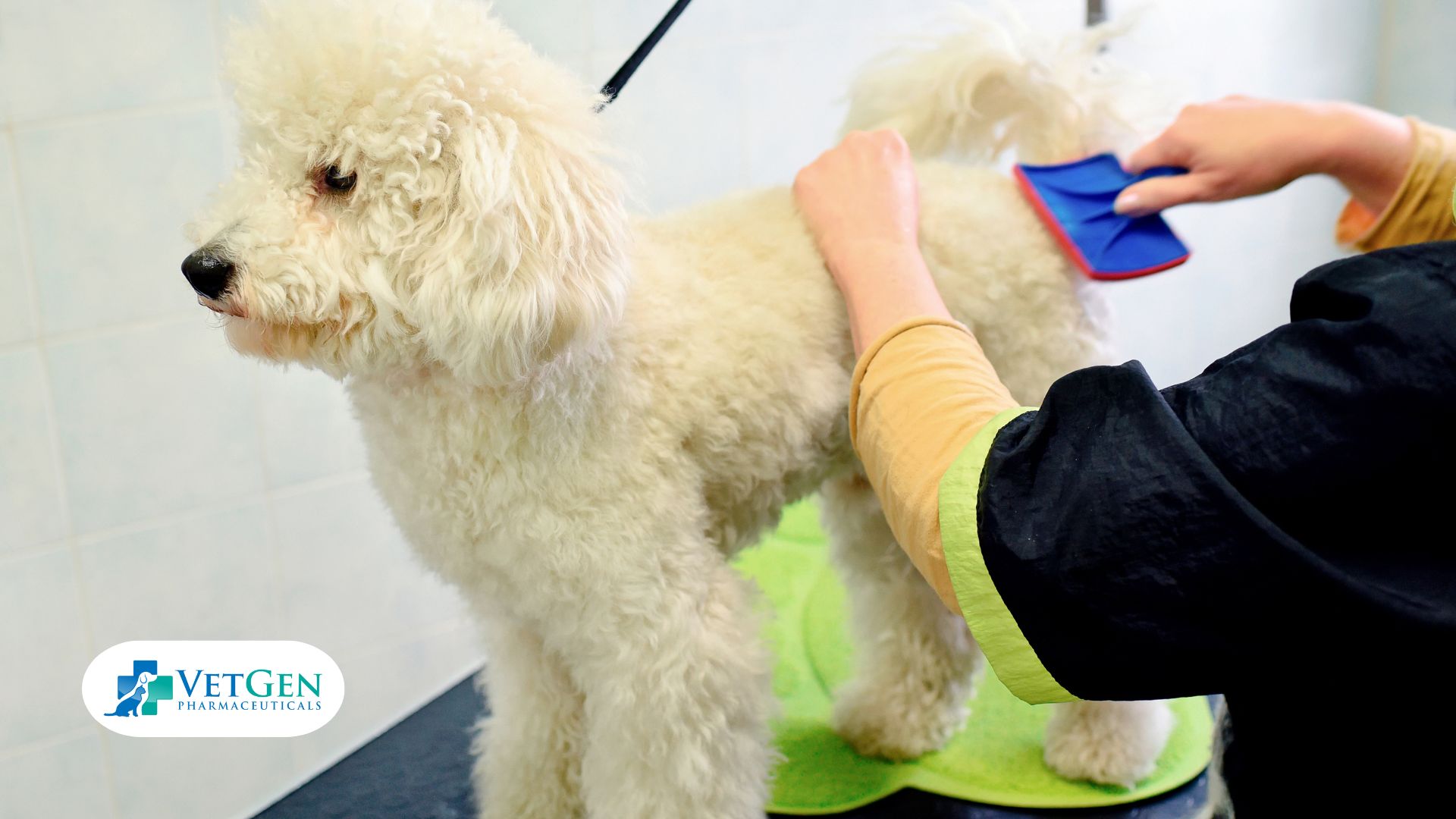
Exercise and Training
A poodle requires everyday physical activity to maintain their good health. Proper engagement of poodles requires the following steps:
- Daily Walks: At least 30–60 minutes of walking keeps them fit.
- Playtime: Games like fetch, tug-of-war, and agility training keep them entertained.
- Training Sessions: Teach commands and tricks to challenge their intelligence.
- Socialization: Introduce them to other dogs and environments to prevent anxiety.
Providing both physical and mental stimulation ensures a well-behaved and happy poodle.
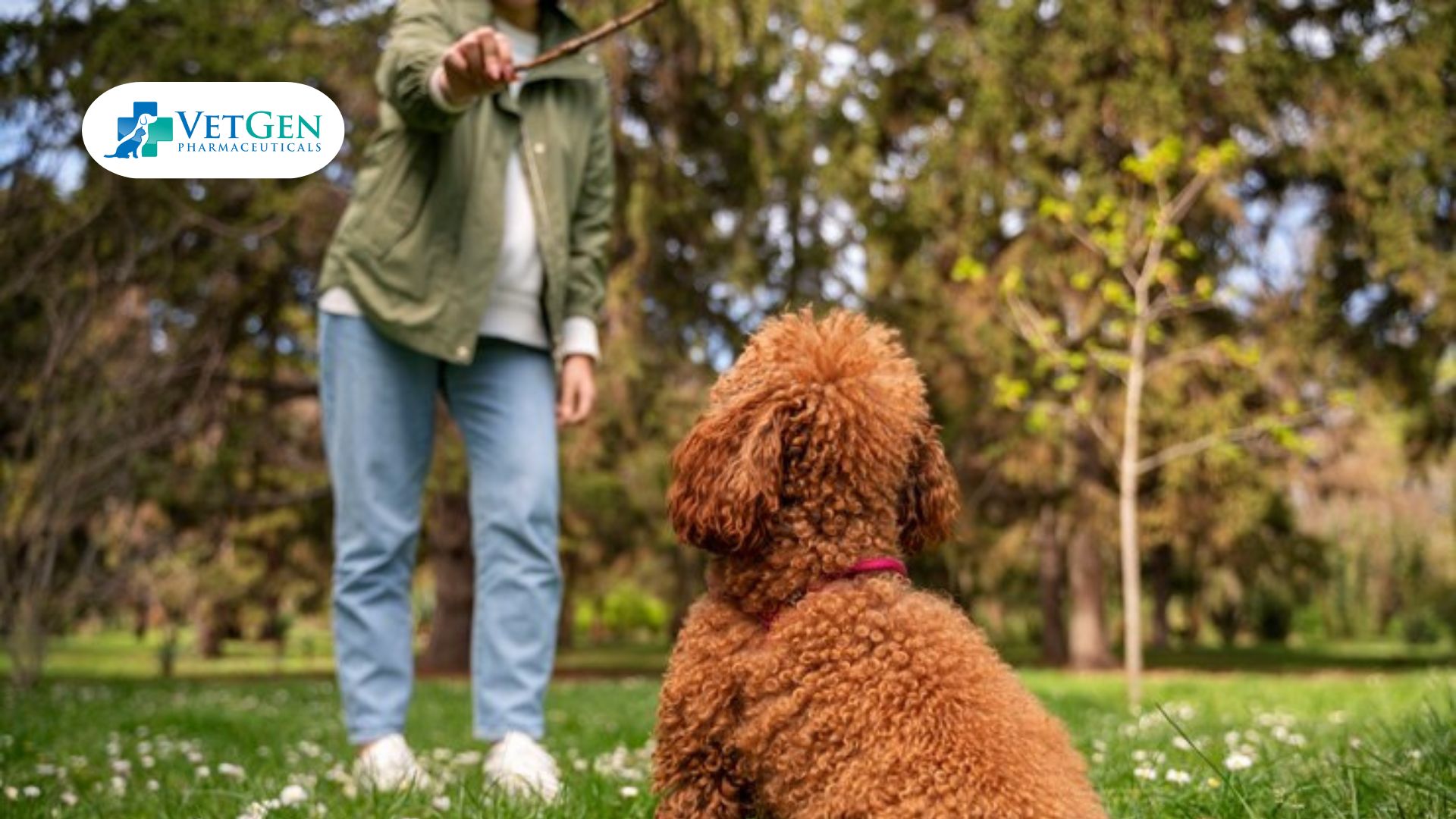
Common Health Concerns
Poodles are generally healthy, but they can be prone to certain conditions. Hip dysplasia is a common issue in Standard Poodles, affecting their mobility. Progressive Retinal Atrophy (PRA) can lead to gradual vision loss, making early detection crucial. Their floppy ears make them more susceptible to ear infections, requiring regular cleaning.
Bloat is a serious condition that affects Standard Poodles and needs immediate medical attention. Dental problems, such as gum disease, can be prevented with regular brushing and professional cleanings.
Regular visits to veterinarians combined with appropriate nutrition and regular grooming practices will help your poodle live long, healthy years.
Conclusion
Poodles function as excellent companions because they exhibit intelligence with affectionate behavior and impressive adaptability. Through sufficient grooming practice, together with proper training measures and appropriate care, they adapt well to diverse living situations.
Once you understand what your poodle needs, you can create an environment for a satisfied and wholesome life, so adoption becomes an exceptional nutritional boost to pet owners.
Want to learn more about poodles and other dog breeds? Visit VetGen Pharmaceuticals for expert tips, breed guides, and essential pet care information. Stay informed and give your furry friend the best care possible!
Frequently Asked Questions
What is the best age to adopt a poodle?
The ideal age to adopt a poodle is around 8–12 weeks. At this stage, they have been weaned from their mother, are socializing well, and can start basic training in their new home.
How to properly care for a poodle?
Proper poodle care includes regular grooming, high-quality food, daily exercise, and mental stimulation. Routine vet visits and vaccinations are also essential to ensure their long-term health and happiness.
Can poodles be left alone for 8 hours?
Poodles do not tolerate long periods of isolation well. While adult poodles may manage 6–8 hours alone with proper training, puppies and Miniature Poodles need more attention to prevent anxiety and destructive behavior.
At what age do poodles calm down?
Poodles start calming down around 2–3 years old. Standard Poodles may take longer, while Miniature and Toy Poodles tend to settle down earlier. Regular exercise and training help manage their energy levels.
Can Poodles live up to 20 years?
Yes, Toy and Miniature Poodles often live 15–20 years with proper care. Standard Poodles typically have a lifespan of 12–15 years. A healthy diet, regular exercise, and routine vet visits contribute to their longevity.

